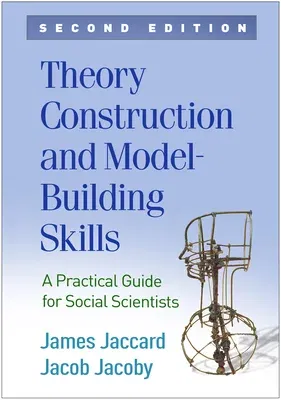This accessible, hands-on text has now been revised and updated, with
expanded coverage of topics including how theory may emerge from
exploratory data analysis. The book prepares graduate students, new
researchers, and even seasoned investigators to develop their own
theories and build on existing ones. Concrete strategies are provided to
help readers generate ideas, define constructs, and think through
relationships and processes that link constructs. Compelling examples
from multiple disciplines illustrate the use of quantitative,
qualitative, and mixed methods orientations to theory construction. The
text also offers practical advice for writing effectively about theories
in papers and grant applications. Readers learn by doing via application
and concept exercises, demonstration boxes, and practical guidelines.
The extensive companion website (www.theory-construction.com) includes
PowerPoint slides of all of the book's figures, primers on advanced
topics, video demonstrations, supplemental exercises, and other
resources.
New to This Edition
*Emergent theory is now covered in mixed methods as well as qualitative
approaches, plus in a new chapter on exploratory quantitative methods
that can help generate new theory through data mining.
*Chapter on whether and how to revise a theory when faced with
disconfirmatory data.
*Two chapters on the theoretical underpinnings of measurement
practices.
*New or expanded discussions of what constitutes a theoretical
contribution, conceptual logic models, thought experiments, and more.
Pedagogical Features
*Application and concept exercises in every chapter.
*Lists of key terms and engaging topical boxes.
*Annotated suggestions for further reading.
*New companion website with rich resources for students and
instructors.
*Chapters stand on their own and can be used in any order.

